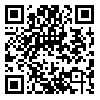1. American Psychiatric Association. Diagnostic and statistical manual of mental disorders. Arlington, VA: American Psychiatric Association; 2013.
2. Tarver J, Daley D, Sayal K. Attention‐deficit hyperactivity disorder (ADHD): an updated review of the essential facts. Child Care Health Dev. 2014;40(6):762–74. [
DOI]
3. Doernberg E, Hollander E. Neurodevelopmental disorders (ASD and ADHD): DSM-5, ICD-10, and ICD-11. CNS Spectr. 2016;21(4):295–9. [
DOI]
4. Sjöwall D, Roth L, Lindqvist S, Thorell LB. Multiple deficits in ADHD: executive dysfunction, delay aversion, reaction time variability, and emotional deficits. J Child Psychol Psychiatry. 2013;54(6):619–27. [
DOI]
5. Hornstra R, Groenman AP, Van Der Oord S, Luman M, Dekkers TJ, Van Der Veen‐Mulders L, et al. Review: which components of behavioral parent and teacher training work for children with ADHD ? a meta regression analysis on child behavioral outcomes. Child Adolesc Ment Health. 2023;28(2):258–68. [
DOI]
6. Fosco WD, Hawk LW, Rosch KS, Bubnik MG. Evaluating cognitive and motivational accounts of greater reinforcement effects among children with attention-deficit/hyperactivity disorder. Behav Brain Funct. 2015;11(1):20. [
DOI]
7. Moore DA, Richardson M, Gwernan-Jones R, Thompson-Coon J, Stein K, Rogers M, et al. Non-pharmacological interventions for ADHD in school settings: an overarching synthesis of systematic reviews. J Atten Disord. 2019;23(3):220–33. [
DOI]
8. Graziano PA, Garcia A. Attention-deficit hyperactivity disorder and children's emotion dysregulation: a meta-analysis. Clin Psychol Rev. 2016;46:106–23. [
DOI]
9. Lee P-chin, Niew Wern-ing, Yang Hao-jan, Chen VC, Lin Keh-chung. A meta-analysis of behavioral parent training for children with attention deficit hyperactivity disorder. Res Dev Disabil. 2012;33(6):2040–9. [
DOI]
10. Daley D, Van Der Oord S, Ferrin M, Cortese S, Danckaerts M, Doepfner M, et al. Practitioner review: current best practice in the use of parent training and other behavioural interventions in the treatment of children and adolescents with attention deficit hyperactivity disorder. J Child Psychol Psychiatry. 2018;59(9):932–47. [
DOI]
11. Daley D, Van Der Oord S, Ferrin M, Danckaerts M, Doepfner M, Cortese S, et al. Behavioral interventions in attention-deficit/hyperactivity disorder: a meta-analysis of randomized controlled trials across multiple outcome domains. J Am Acad Child Adolesc Psychiatry. 2014;53(8):835-847.e5. [
DOI]
12. Weisz JR, Kuppens S, Ng MY, Vaughn-Coaxum RA, Ugueto AM, Eckshtain D, et al. Are psychotherapies for young people growing stronger? tracking trends over time for youth anxiety, depression, attention-deficit/hyperactivity disorder, and conduct problems. Perspect Psychol Sci. 2019;14(2):216–37. [
DOI]
13. Bulgan G, Çiftçi A. Psychological adaptation, marital satisfaction, and academic self-efficacy of international students. Journal of International Students. 2017;7(3):687–702.
14. Munoz-Silva A, Lago-Urbano R. Child ADHD severity, behavior problems and parenting styles. Ann Psychiatry Ment Health. 2016;4(3):1066. [
DOI]
15. Omidinejad M, Salibi J, Namvar H. The effect of using parent's behavioral management training (PMT) based on functional behavioral assessment (FBA)approach, on the attention and concentration, behavioral problems, and socioemotional adjustment of 6-12 years old children with attention deficit hyperactivity disorder. Middle Eastern Journal of Disability Studies. 2022;12:65. [Persian] [
Article]
16. Motavalli Pour A, Beh Pajooh A, Shokoohi Yekta M, Ghobari Bonab B, Arjmandnia A. Developing a family based cognitive-behavioral play therapy program for students with attention deficit hyperactivity disorder and its effectiveness on the symptoms of this disorder. Middle Eastern Journal of Disability Studies. 2019;9:113. [Persian] [
Article]
17. Shahmiveh Esfahani A, Abedi A, Faramarzi S, Yarmohamadiyan A. The Compare Effectiveness of Positive Behavioral Support program and Barkley's parenting model on improve symptoms in ADHD children. Middle Eastern Journal of Disability Studies. 2019;9:82. [Persian] [
Article]
18. Goyette CH, Conners CK, Ulrich RF. Normative data on revised Conner's parent and teacher rating scales. J Abnorm Child Psychol. 1978;6(2):221–36. [
DOI]
19. Shahaeian A, Shahim S, Bashash L, Yousefi F. Standardization, factor analysis and reliability of the Conners' parent rating scales for 6 to 11 years old children in Shiraz. Journal of Educational Psychology Studies. 2007;3(3):97–120. [Persian]
20. Cotton SM, Kiely PM, Crewther DP, Thomson B, Laycock R, Crewther SG. A normative and reliability study for the Raven's Coloured Progressive Matrices for primary school aged children from Victoria, Australia. Pers Individ Dif. 2005;39(3):647–59. [
DOI]
21. Raven JC, Court JH. Raven's progressive matrices and vocabulary scales. Oxford: Oxford Psychologists Press; 1998.
22. Rajabi Gh. Normalizing the Raven Coloure Progressive Matrices Test on students of city Ahvaz. Contemporary Psychology. 2008;3(1):23-32. [Persian] [
Article]
23. Barkley RA. Defiant children: a clinician's manual for assessment and parent training. 2nd ed. New York: Guilford Press;1997.
24. Krumboltz JD, Krumboltz HB. Tagheer dadan raftarhaye koodakan va nojavanan [Changing the behavior of children and adolescents]. Karimi Y. (Persian translator). Tehran: Fatemi; 2000. [Persian]
25. Morris RJ. Eslah raftare koodakan [Changing children's behavior]. Kasaeian N. (Persian translator). Tehran: University Publishing Center; 2002. [Persian]
26. Raymond G, Berger M. Behavior modification. Fathi Ashtiani A, Azimi Ashtiani H. (Persian translator). Tehran: Samt; 2023. [Persian]
27. Nazari MA. Rahnamaye ravesh haye eslah va tagheer raftare koodakan baraye valedeyn va morabiyan [A guide to the methods of correcting and changing children's behavior for parents and educators]. Tehran: Arjmand; 2002. [Persian]
28. Lawshe CH. A quantitative approach to content validity 1. Personnel Psychology. 1975;28(4):563–75. [
DOI]
29. Fabiano GA, Schatz NK, Aloe AM, Chacko A, Chronis-Tuscano A. A systematic review of meta-analyses of psychosocial treatment for attention-deficit/hyperactivity disorder. Clin Child Fam Psychol Rev. 2015;18(1):77–97. [
DOI]
30. Davison GC, Blankstein KR, Flett GL, Neale JM. Abnormal Psychology. 5th edition. Toronto: Wiley; 2013.






